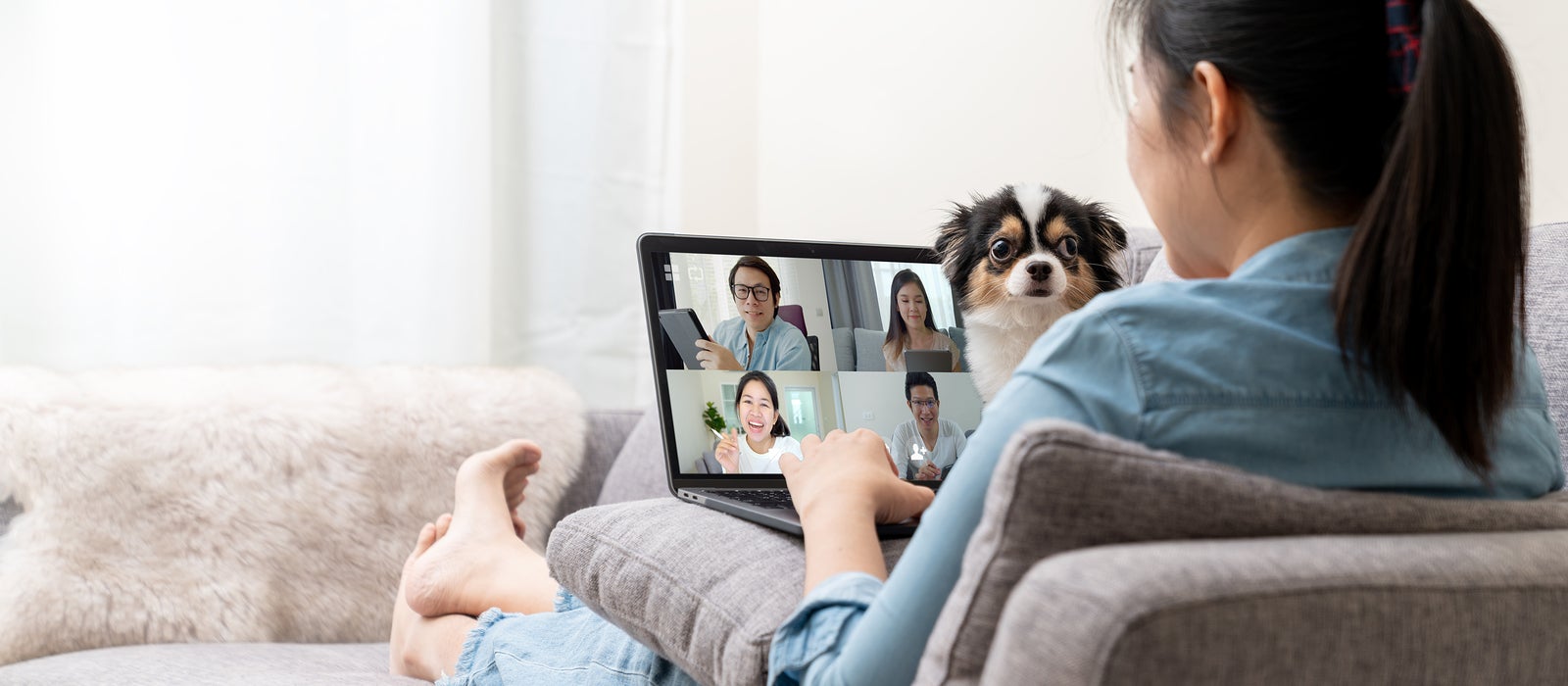
Zoom has been one of the groundbreaking technologies and most adopted platforms since the covid pandemic struck just over 12 months ago. Although it was founded by Eric Yuan in 2011, it was really in the last year that it became a household name and became the go-to video conferencing tool for anyone looking to conduct business or catch up with family and friends.
However, having regular Zoom calls is starting to take its tolls on remote workings, something which has coined the prognosis of ‘Zoom fatigue’ – whereby people feel exhausted, drained and worse off after every call. We hear from the experts to find out why and how we can overcome this.
According to Gianpiero Petriglieri, an associate professor at Inseads:
“Being on a video call requires more focus than a face-to-face chat. Video chats mean we need to work harder to process non-verbal cues like facial expressions, the tone and pitch of the voice, and body language; paying more attention to these consumes a lot of energy. Our minds are together when our bodies feel we’re not. That dissonance, which causes people to have conflicting feelings, is exhausting. You cannot relax into the conversation naturally,” he says.
“In addition,” he continues. “The slight delay of even 1.2 seconds makes the responder seem less friendly or focused, as if you do not have their full attention and are trying to overcompensate or impress.”
“In fact, one study carried out in Germany in 2014 showed that even slight delays created a negative feeling from the video conference caller recipient.”
Marissa Shuffler, an associate professor at Clemson University, told BBC Worklife:
“When you’re on a video conference, you know everybody’s looking at you; you are on stage, so there comes the social pressure and feeling like you need to perform. Being performative is nerve-wracking and more stressful. It’s also very hard for people not to look at their own face if they can see it on screen, or not to be conscious of how they behave in front of the camera.”
Shuffler also highlights the sad feelings of teams not being together or united – a stark reminder of how difficult lockdown has been for some individuals.
So how do we overcome this Zoom fatigue? Many will be delighted at the slow re-openings of office spaces and meeting rooms across the UK and the US. Furthermore, the spring and summertime makes meeting outdoors more accessible and people might be able to get some good exercise too.
But if you are going to continue videoconferencing, maybe because of the distance between teams and parties, the experts have a couple of suggestions.
Firstly, does everything need to be a on a video call? A standard phone call used to be sufficient, but now more and more people just opt for a Zoom or Hangout because it is quickly available.
You should also have the option to turn off your camera if you want and make sure that you are always fundamentally taking breaks and this can involve going for walks, stretching or doing other exercise. Above all, managers should always be checking in with the wellbeing of their teams and making sure that mental health is in check.
You can also consider using Zoom alternatives such as Whereby, Skype or Microsoft Teams which have different features and tools and might just mix things up a bit.
1753 Views














